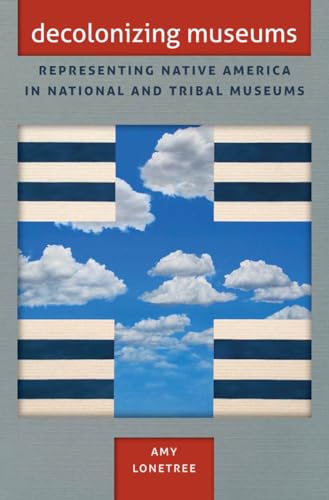Decolonizing Museums
Representing Native America in National and Tribal Museums (First Peoples, New Directions in Indigenous Studies)
Amy Lonetree
BOOK REVIEW

In Decolonizing Museums: Representing Native America in National and Tribal Museums, Amy Lonetree embarks on a courageous quest to dismantle the colonial narratives that have long dominated museum representations of Native American cultures. This work isn't just an academic treatise; it's a rallying cry for justice, equity, and recognition-a beacon that illuminates the path toward a more inclusive and authentic representation of Indigenous histories and identities.
From the very first pages, you'll find yourself drawn into a world of powerful emotions and urgent conversations. Lonetree invites you to confront the uncomfortable truths about how museums have historically portrayed Native peoples-often as relics of the past, stripped of their contemporary realities. This isn't mere theoretical debate; it's about lives, cultures, and stories that have been silenced for far too long. 💔
The author, a member of the Ho-Chunk Nation, weaves her narrative through a deeply personal lens, drawing from her own experiences and the broader historical context in which Native communities have navigated the complexities of representation. Her passion for decolonization and advocacy for Indigenous voices resonates throughout the text, making every argument not only compelling but also profoundly human.
Lonetree doesn't shy away from the messy, often contentious relationship between museums and Indigenous communities. In her analysis, she confronts the pervasive power dynamics that have historically marginalized Native peoples-demanding that institutions recognize their complicity in perpetuating stereotypes and inaccuracies. This is an awakening; it forces institutions to face their own pasts as they strive to build a future rooted in authenticity and collaboration.
The reader encounters thought-provoking case studies that highlight successful efforts in decolonizing museums, showcasing how collaborative exhibits can authentically represent Native perspectives. Lonetree's examination of both tribal and national museums illustrates not just the differences but also the potential for a more empowered dialogue. It's here where hope ignites. ✊️
Amidst the rich tapestry of arguments, the voices of the Indigenous people emerge, beckoning you to listen-to understand that their stories deserve to be told on their own terms. The passionate pleas for respect, authenticity, and recognition echo long after the book is closed, compelling readers not just to reflect but to act. "Decolonizing Museums" isn't just a book; it's a transformative experience that demands your attention and your heart.
It's crucial to note that while many readers laud Lonetree's insightful critique and fresh perspectives, there are some who may feel challenged by the radical rethinking of institutional narratives. Critics argue that her proposals may be too ambitious for some museums to implement in practice. However, is it not precisely this ambition that is needed to spur real change? 🌎
In an era where social justice movements are shaking the foundations of longstanding institutions, Lonetree's work stands as a vital contribution, pushing boundaries and inspiring action. It's a call to arms for all who value equity, respect, and the enduring legacy of Indigenous peoples.
Dive into Decolonizing Museums and prepare to have your perceptions shattered and reshaped. Your understanding of history, culture, and the role of institutions will forever be transformed. This is not merely an academic endeavor; it's an urgent appeal for recognition and healing. 🌟 Don't miss the opportunity to engage with a text that is as emotionally charged as it is intellectually profound.
📖 Decolonizing Museums: Representing Native America in National and Tribal Museums (First Peoples, New Directions in Indigenous Studies)
✍ by Amy Lonetree
🧾 248 pages
2012
#decolonizing #museums #representing #native #america #national #tribal #museums #first #peoples #directions #indigenous #studies #lonetree #AmyLonetree